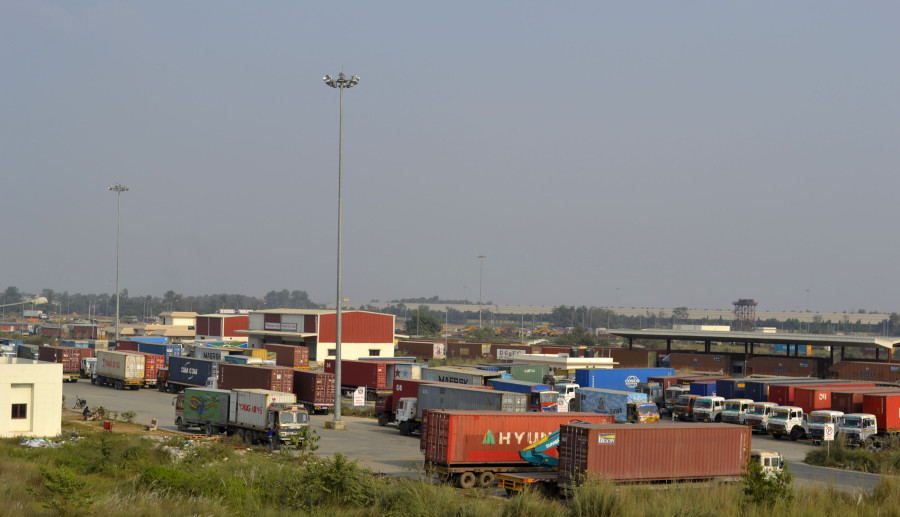Money
Traders using Integrated Check Post over traditional customs point in Birgunj
After eleven months in operation, traders are choosing the integrated check post over the traditional customs point in Birgunj. Around 60 percent of the total imports from the Birgunj customs happen via the integrated check post as importers are using it for the import of goods from third countries, fuel and new vehicles.
Shanker Acharya
After eleven months in operation, traders are choosing the integrated check post over the traditional customs point in Birgunj. Around 60 percent of the total imports from the Birgunj customs happen via the integrated check post as importers are using it for the import of goods from third countries, fuel and new vehicles.
“The amount of fuel and new vehicles imported from the integrated check post (ICP) is similar to what is imported from the Birgunj customs point,” said Manish Mahato, information officer at the ICP customs office. “With the additional consignment from third countries being imported through the ICP, it has surpassed Birgunj customs in terms of transaction volume.”
While some importers are still using Birgunj customs point to import coal, petroleum tankers, new vehicles and other goods, majority are shifting toward the ICP.
According Tarka Raj Joshi, officer at Intermodal Transportation Development Committee which is operating the ICP, lately the ICP is also being used to export goods from Nepal.
In the current fiscal year (by 7th March), 90,870 brand new vehicles entered Nepal through the integrated check post. Similarly, 7,534 cargo vehicles left Nepal via the integrated check post during the review period.
Consumer goods produced by Dabur Nepal and sunflower oil produced by different factories are the major items exported from Nepal through the check post.
The ICP in Birgunj came into operation on April, 2018 after Prime Minister KP Sharma Oli and his Indian counterpart Narendra Modi jointly inaugurated the post from a remote location during Oli’s visit to India. The check post was built under Indian assistance to ease import and export of goods to and from Nepal, India and third countries.
Nepal and India had signed an agreement in 2005 for building ICPs in a number of bordering regions like Biratnagar, Birgunj, Bhairahawa and Nepalgunj. India has spent around IRs860 million for the construction of the infrastructure in Birgunj. The ICP consists of 22 buildings, including road, yard and compound wall, among other infrastructure.
The construction of ICP on the Nepali side was supposed to be completed in October 2013. But running behind schedule, only 40 percent of construction works was completed at the time. The Indian government later extended the deadline to March 31, 2015. Having missed it too, the contractors extended it for the second time. The ICP on the Indian side was completed in July 2016.




 13.16°C Kathmandu
13.16°C Kathmandu














